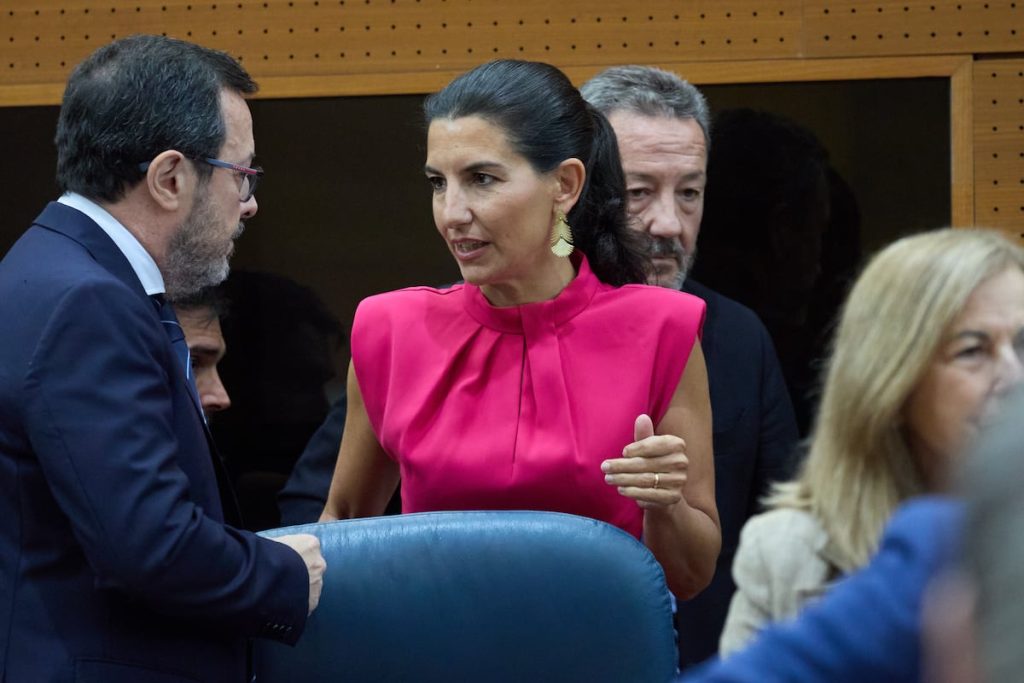The leadership of Vox is planning to remove Rocío Monasterio as the president of the party in Madrid, as her mandate has allegedly expired after four years. The replacement for Monasterio will not come from new primary elections, as Vox changed its statutes in April 2022 to remove internal elections, allowing the National Executive Committee to appoint provincial committees. The name being considered as Monasterio’s replacement is José Antonio Fúster, who became the national spokesperson of Vox in March. Fúster, a journalist, has worked in the Intereconomía Group, which was previously owned by Vox’s media patron Julio Ariza.
The removal of Rocío Monasterio as the president of Vox in Madrid was expected, as the party has been maneuvering to replace her for some time. The national leadership tried to remove her as a candidate for the Madrid regional elections on May 28 by offering her other positions, such as being a candidate for the European Parliament or joining Disenso, a foundation chaired by Abascal. Despite this, Monasterio led Vox’s candidacy in the regional elections, but received little support from the national leadership. She ended up with fewer seats compared to the previous elections, facing competition from Isabel Díaz Ayuso, who attracted a significant portion of Vox’s voter base.
Monasterio found herself isolated within Vox after her husband, Iván Espinosa de los Monteros, left various positions within the party. Monasterio was one of the few founding members of Vox still holding a leadership position ten years after the party’s creation. She played a key role in establishing Vox in Madrid, where the party has over 200 councilors. However, she is not part of the National Executive Committee and has faced challenges within the party, particularly after the departure of her husband and other key figures who were removed from positions of influence.
Despite her significant contributions to Vox, Monasterio’s position as president of the party in Madrid appears to be under threat. Her leadership style and decisions have faced criticism from within the party, leading to her being sidelined by the national leadership. The decision to replace Monasterio with José Antonio Fúster, a prominent figure within Vox, reflects a broader shift within the party towards centralizing power and decision-making within the National Executive Committee. Monasterio’s potential removal underscores the ongoing internal struggles and power dynamics within Vox as it seeks to consolidate its position in the political landscape.
As one of the last remaining original founders of Vox holding a leadership position, the potential removal of Rocío Monasterio raises questions about the future direction of the party. Monasterio’s contributions to Vox’s expansion in Madrid and her role in shaping the party’s platform have been significant. However, her departure could signal a broader shift within Vox towards a more centralized leadership structure. The decision to replace Monasterio without holding new primary elections highlights the evolving dynamics within Vox as it navigates internal tensions and strives to maintain its relevance in the Spanish political landscape.















